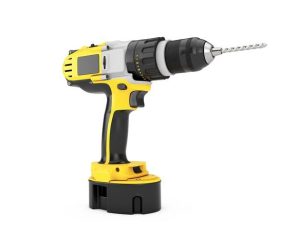Hammer Drill vs. Impact Drill: A Comparative Analysis
Hammer drills and impact drills are both versatile power tools commonly used in construction and DIY projects, but they serve different purposes and excel in distinct applications. Let’s delve into a comparative analysis of these two tools:
- Functionality:
- Hammer Drill: A hammer drill is primarily designed for drilling into hard materials like concrete, brick, and stone. It features a hammering action that delivers rapid, short, and powerful blows to the drill bit as it rotates, helping to break through tough surfaces.
- Impact Drill: An impact drill, also known as an impact driver, is designed for driving screws and fasteners with high torque and efficiency. It combines rotational force with concussive blows to provide additional torque, making it easier to drive screws into various materials, including wood, metal, and plastic.
- Drilling Capacity:
- Hammer Drill: Due to its hammering action, a hammer drill is ideal for drilling into hard materials, such as concrete and masonry. It can handle tasks like installing anchors, drilling holes for pipes, and setting bolts in tough surfaces.
- Impact Drill: While an impact drill can drill holes, its primary strength lies in driving screws and fasteners with high torque and precision. It’s suitable for tasks like assembling furniture, framing, and installing hardware.
- Torque and Speed:
- Hammer Drill: Hammer drills typically have variable speed settings and high torque, allowing for precise control and efficient drilling in tough materials.
- Impact Drill: Impact drills are known for their high torque output, making them effective for driving screws and fasteners quickly and effortlessly.

- Versatility:
- Hammer Drill: Although primarily used for drilling into hard materials, some hammer drills come with switchable modes, allowing them to function as regular drills for softer materials like wood and metal.
- Impact Drill: Impact drills are highly versatile and can be used for a wide range of tasks, including drilling, driving screws, and even light demolition work.
- Noise and Vibration:
- Hammer Drill: Hammer drills tend to produce more noise and vibration due to the hammering action, especially when used on hard materials.
- Impact Drill: Impact drills are generally quieter and produce less vibration compared to hammer drills, making them more comfortable to use for extended periods.
In summary, while both hammer drills and impact drills are valuable tools in a toolkit, their distinct functionalities make them better suited for different tasks. If you need to drill into hard materials like concrete or masonry, a hammer drill is the way to go. However, if you primarily need to drive screws and fasteners with high torque and efficiency, an impact drill would be the better choice.

